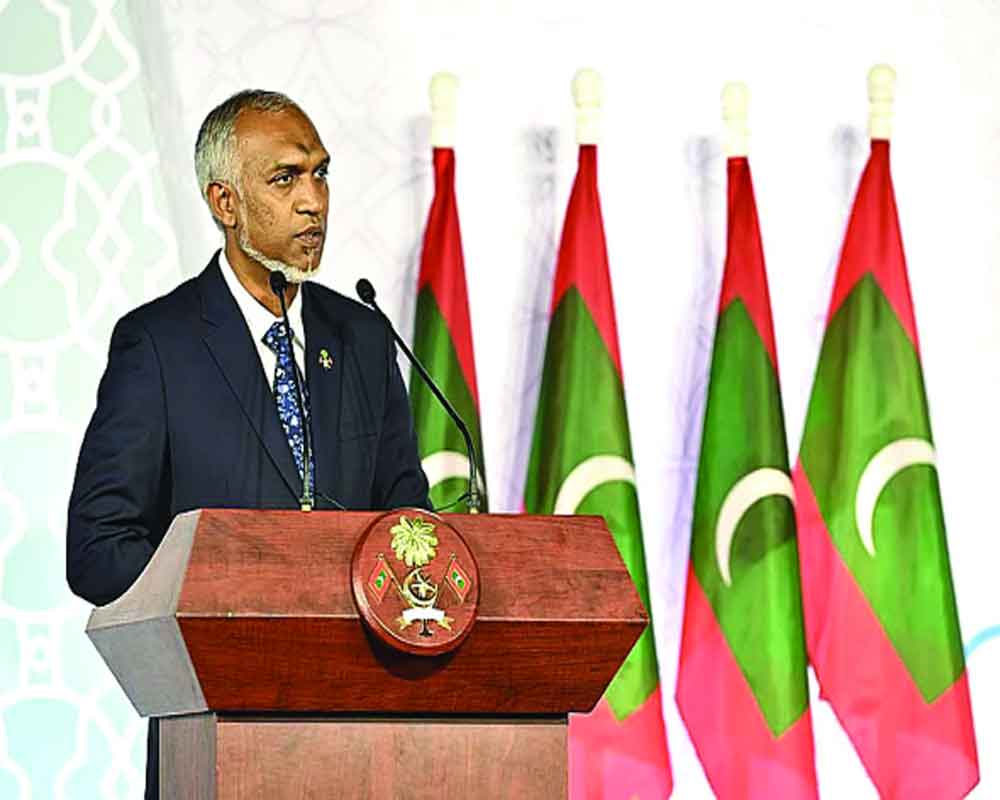The Maldives is running into one crisis after another; now an impeachment motion looms over Muizzu
Generally known for its turquoise waters, pristine beaches and coral reefs, the name of the Maldives as a destination for Indian tourists is currently mud. The archipelago's complex political scenario has raised concerns not only within the country but also in the larger geopolitical landscape. The looming impeachment motion against Md Muizzu, the Maldives President, coupled with a shocking fall in Indian tourist numbers, underscores a shifting dynamic in the Indian Ocean region. The developments have triggered apprehensions about the country's stability. Given its strategic location, the internal political dynamics are crucial not only for the Maldives but also for the Indian Ocean region. As China seeks to expand its influence, India finds itself at a strategic crossroads, requiring thoughtful and proactive measures to counterbalance these developments. The core of the problem is Muizzu’s desire to distance himself from India and align with China. The Maldives is the newest country to fall prey to Chinese designs: The dragon has been steadily increasing its economic and infrastructural footprint in the region by way of the Belt and Road Initiative (BRI), with significant investments in key projects. This has raised concerns in India about China's expanding influence in a region traditionally considered India's sphere of influence. The Maldives has asked India to remove its military base, which is a big loss for India and will make China stronger in the region.
Though India has flexed its soft power and dissuaded its tourists from going to Maldives, that approach may not work with China's support to the Maldives. But the position of the Maldives has become a little untenable as it earns the major share of revenue from tourism; the recent decline in Indian tourist numbers has hit it hard. Holding the top spot just three weeks ago, Indian tourist arrivals have now slipped to the fifth position. India and the Maldives share ethnic, linguistic, cultural, religious and commercial links steeped in antiquity. The relations have been close, cordial and multi-dimensional: India was among the first nations to recognise the Maldives after its independence in 1965 and to establish diplomatic relations with it. Now, India must adopt a nuanced and strategic approach to maintain influence in the Maldives and counterbalance China's expanding footprint. Strengthening diplomatic ties with our neighbour is paramount. Besides, India should bolster economic cooperation by offering viable alternatives to Chinese investments. Initiatives that promote sustainable development and address the Maldives' economic concerns can help strengthen economic ties. It goes without saying that India would have to back the pro-India Maldivian leaders; for example, the pro-India Maldivian Democratic Party (MDP) has recently claimed a landslide in Male's mayoral election. This is indeed a good sign for India and, if Muizzu is impeached, India could have the chance to re-establish its cordial relations with the Maldives that it has always had.


























